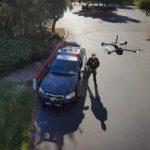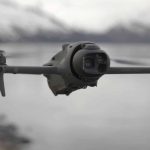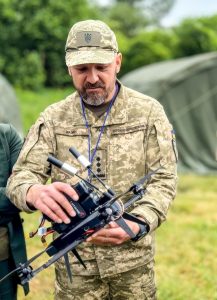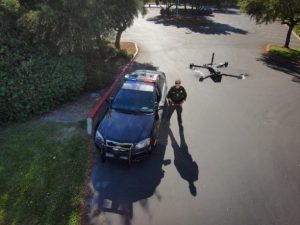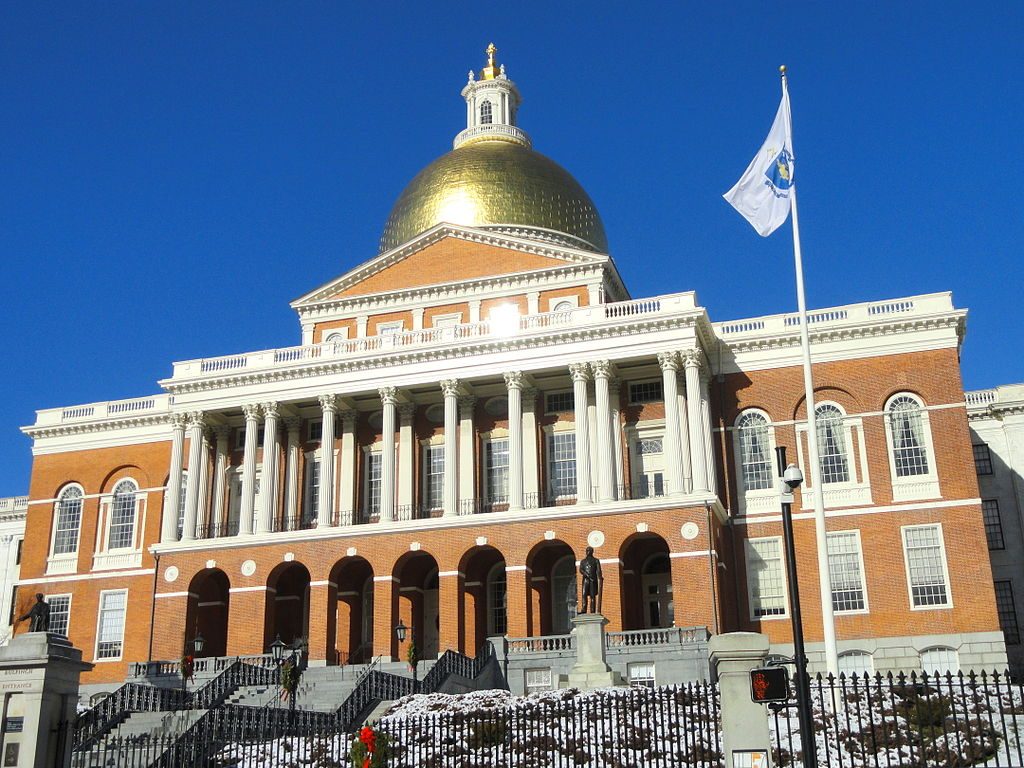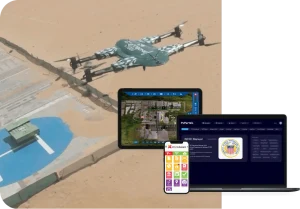Proposed Massachusetts Drone Laws Spark Industry Pushback: A Deep Dive into the Debate, Impact, and Future of Drones in the Commonwealth
If you’ve ever been amazed by a dramatic drone sequence over Boston’s skyline or thought about starting a drone-based venture in Massachusetts, recent headlines might have caught your attention: “Proposed Massachusetts Drone Laws Spark Industry Pushback.” This guide aims to navigate the legal complexities, public discussions, and the implications for drone enthusiasts, professional pilots, and forward-thinking entrepreneurs.
The Big Picture: What’s Happening in Massachusetts?
In 2025, Massachusetts legislators introduced comprehensive drone regulations targeting public safety, privacy, and the growing prevalence of unmanned aircraft systems (UAS). A collection of six bills, notably Senate Bill S2454 sponsored by Senator John C. Velis, aims to impose new limitations on drone operations, focusing on areas around critical facilities like airports, prisons, military bases, law enforcement offices, and hospitals.
Why Now?
As drone technology evolves from recreational use to mainstream business, public safety roles, and STEM education, there is pressure on lawmakers. Senator Velis emphasized, “Our commonwealth laws have not kept pace with technology,” referencing possible drone-related threats at sensitive sites. However, the response has not been unanimous. Drone manufacturers, commercial users, educators, and hobbyists argue these bills could inhibit innovation, impact local businesses, and limit beneficial community activities like search-and-rescue and environmental monitoring.
Key Features of the Proposed Laws
Senate Bill S2454 highlights include:
- No-Fly Zones: Barring unmanned aircraft from flying over critical facilities unless federally permitted, with specific boundaries marked for airports, prisons, and other sensitive sites.
- Operator Requirements: Establishing minimum operational standards for drone pilots, potentially more stringent than existing federal FAA guidelines.
- Enforcement & Penalties: Severe penalties for infractions, including fines and potential imprisonment, especially for reckless or unmarked drones.
- Broad Definitions: Expanding the term “critical facilities” to include hospitals and certain utilities, making Massachusetts regulations more extensive and complex than those in some other states.
These state regulations would add another layer to the existing federal FAA rules governing registration, pilot certification (Part 107), and the use of national airspace.
Why Is the Drone Industry (and Enthusiasts) Pushing Back?
1. Federal vs State Overreach
The drone industry’s main concern is legal. The FAA oversees U.S. airspace, and state-specific laws surpassing or conflicting with this control could create a fragmented regulatory landscape—frustrating businesses and recreational flyers wary of inadvertently violating diverse regulations.
2. Chilling Effect on Innovation
Massachusetts hosts a burgeoning drone startup ecosystem and an active STEM education sector, with schools using cost-effective drones for teaching robotics, science, and coding. Proposals for “no-fly” zones and import bans could deprive students and educators of essential technology, hindering educational progress and talent development as Massachusetts seeks to grow its tech sector.
3. Economic Impact
Local enterprises like real estate photographers, surveyors, construction managers, and public safety agencies depend on drones for efficient, economical operations. Industry leaders caution that stringent regulations could:
- Force businesses out of the state, eliminating local jobs and tax income.
- Burden small companies unable to afford high compliance costs.
- Thwart Massachusetts’ ambition to be a tech frontrunner in the Northeast.
4. Emergency Response and Safety
Ironically, severely limiting drones may endanger public safety instead of enhancing it. Drones provide crucial real-time visuals for firefighters, search-and-rescue teams, and law enforcement. Many of these drones, produced by companies like DJI, face potential bans due to security concerns. Removing or restricting these tools could directly hinder public safety operations and delay emergency assistance.
“Ground Zero” for the Debate: Real World Examples
Search and Rescue
An example from Hampden County: A public safety drone team used a Chinese-made UAS to quickly locate a missing child. Under proposed regulations and equipment bans, this kind of rapid response could become unfeasible, further burdening first responders.
Business in the Crosshairs
A Boston real estate company utilizes drones to create property overviews and marketing content. Owner Michael L. stated, “Requiring written permission and handling a dynamic patchwork of no-fly zones statewide would ruin our turnaround time and likely our business model.”
STEM Classrooms
Local high school robotics clubs are concerned that import restrictions will eliminate affordable classroom drones. “Students build, code, and fly—these are tomorrow’s engineers,” said teacher Elena V., “but the proposed law challenges this forward movement.”
Current Drone Laws in Massachusetts: Complex and Patchwork
Before these new proposals, Massachusetts already combined federal FAA rules with a range of state and local regulations:
- Massport “No Drone Zone” Signs: Over 200 signs posted at 50+ locations near Logan International Airport and other key areas.
- Recreation Restrictions: As of 2016, drones are prohibited from taking off or landing on Department of Conservation and Recreation properties except during emergencies.
- Local Permits: Municipalities like Belchertown and Chicopee require written consent to fly over public or private domains; Boston enforces its own park operation regulations.
- Boston’s Airspace: The city’s skyline and event areas are especially sensitive, frequently requiring special notifications or clearances.
Drone pilots in Massachusetts must navigate FAA rules (registration, altitude limits, night operations, etc.), state park and forest restrictions, and unique local mandates—even before considering these new proposals.
National Context & The DJI Question
Massachusetts is not an anomaly; several states have drafted laws concerning privacy, no-fly zones, and drones manufactured abroad. What is unique in the Bay State is the potential ban on selling or importing popular consumer drones. Since DJI, a Chinese manufacturer, holds about 75% of the world’s drone market, such a ban could affect hobbyists as well as public safety and business sectors.
After DJI recently removed geofencing from their software—making pilots solely responsible—some experts call for strong local enforcement, while others argue this targets the wrong issues and risks outlawing safe, established platforms used by professionals.
What Do Experts, Pilots, and Lawmakers Say?
Lawmakers (Proponents)
“We regulate cars, we regulate aircrafts — we must do the same for drones… Law enforcement has very few options for overseeing drone usage.” — Sen. John Velis
Main concerns: privacy violations, airport threats, and misuse by malicious actors.
Industry and Opponents
“Massachusetts risks becoming the toughest place to start a drone company in New England. These restrictions penalize everyone for the errors of a few.”
Main concerns: conflicting laws, stifling innovation, harming education, affecting emergency response.
Law Enforcement/Safety Experts
Boston Police and other agencies stress the need for rapid identification and stoppage of illegal flyers but also advocate drones’ role in their operations.
Advice to recreational pilots: “Always verify with local authorities about the rules before flying. It will prevent troubles and possible fines!”
Frequently Asked Questions (FAQ): What Do These Laws Mean for Me?
Q1: Can I still fly my drone for fun in Massachusetts?
Yes—but you must comply with FAA regulations and both new and existing state/local restrictions. Some parks, schools, and public venues might require written permission or outright prohibit drone launches/landings.
Q2: Will I have to get a new license or permit?
Depending on the final legislation, you might need to satisfy requirements beyond FAA’s Part 107 certification. Keep an eye out for permit clauses, additional documentation, or age limits in upcoming legislative drafts.
Q3: Is my current drone at risk of being banned?
It’s possible. If bills like HB 3800 are enacted, certain popular drones, especially from DJI and other foreign producers, may face restrictions, affecting both recreational users and professionals. Be vigilant about serial numbers and manufacturing origins in future purchases.
Q4: What about business uses?
Adhering to multiple levels of state and local laws could extend project timelines, increase costs, and escalate legal uncertainty for activities like mapping, inspection, surveying, film/video production, real estate, and drone deliveries.
2025: Where Does This Leave Massachusetts?
The situation remains unsettled. Legislators are negotiating, and industry groups advocate for a solution that ensures safety without stifling innovation. Given Massachusetts’ reputation as a leader in tech and STEM fields, many urge cooperation among legislators, the FAA, local authorities, and community members.
If you’re a drone pilot, hobbyist, or business owner: Stay informed, stay compliant, and involve yourself in the legislative dialogue. Today’s decisions could shape tomorrow’s rules.
Pro Tip:
When in doubt, always consult FAA maps, Massport announcements, and municipal ordinances before flying. If you’re a commercial pilot, consider joining statewide or national advocacy organizations—they are fighting for your right to fly!
A Human Approach: Why Our Team Is Passionate
At [Your Drone Company/Brand], we’re more than drone sellers—we’re engineers, educators, and pilots committed to putting technology in the hands of responsible, creative individuals. Whether you’re a student building your first quadcopter, a contractor surveying rooftops, or a first responder saving lives, we comprehend the real-world challenges posed by these laws.
Our experts monitor every legal change and also provide client education, pilot training, and advocate for sensible, balanced regulation. This is not just business—it’s a mission to keep Massachusetts open for innovation, safety, and future aerial pioneers.
If you have questions, need training, or seek legal updates—reach out, and let’s ensure the skies remain accessible for everyone.
Did You Know?
- The FAA estimates that by 2026, more than 500,000 commercial drones will be operational in the U.S.—Massachusetts is projected to be a leader in STEM drone programs.
- The classic “never bring a drone to a Beyoncé concert” meme? It epitomizes the rule against flying in no-fly zones at large events.
- Movies filmed in Boston increasingly depend on legal drone footage, which could be affected by any new laws—potentially altering how the city is showcased on screen.
Stay tuned, stay passionate (and stay legal)—the skies over the Commonwealth are rapidly evolving!



